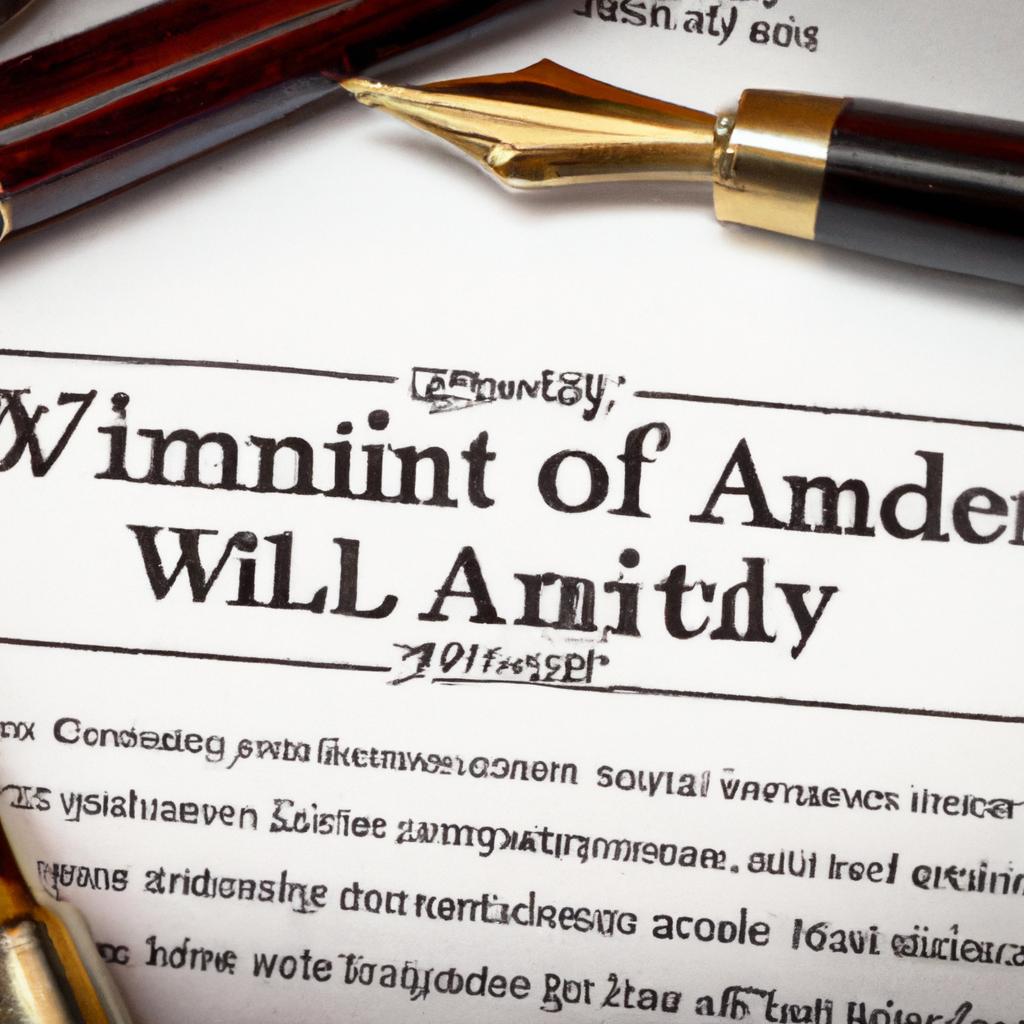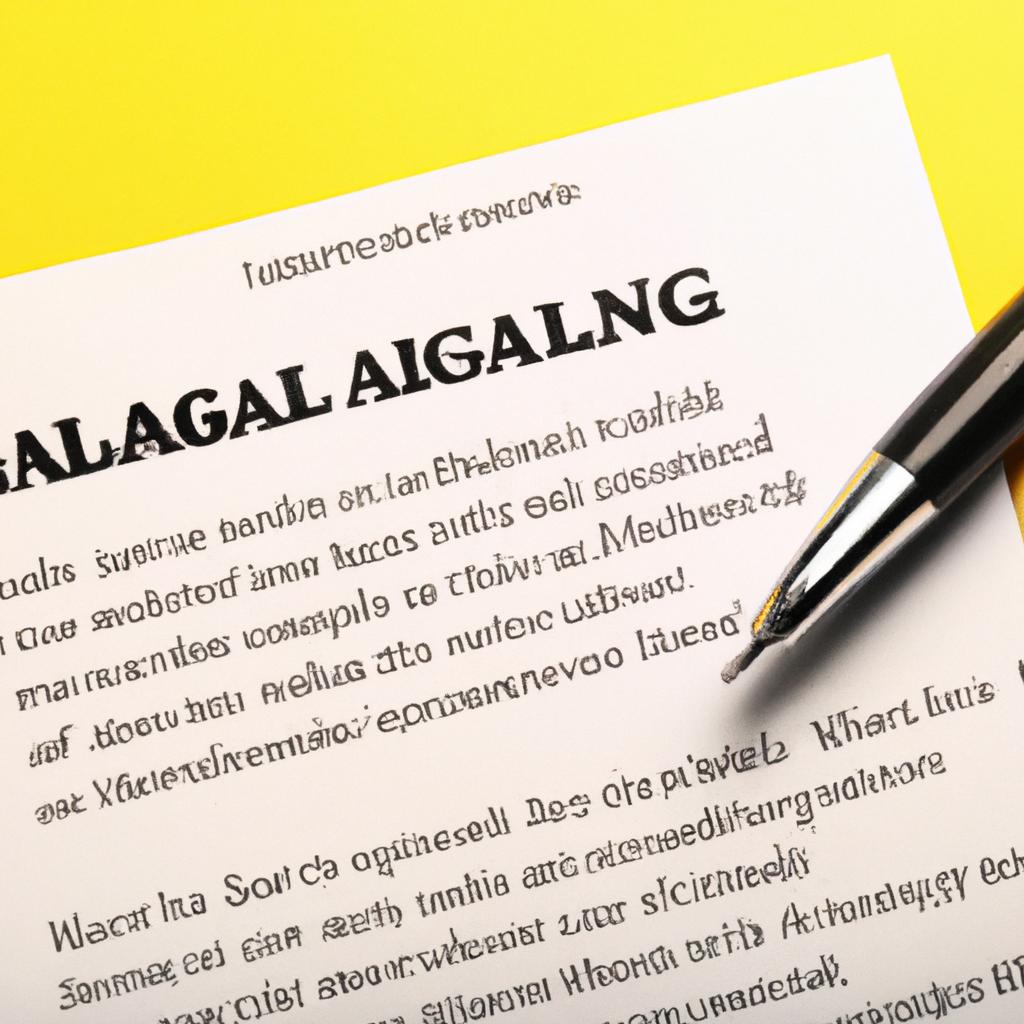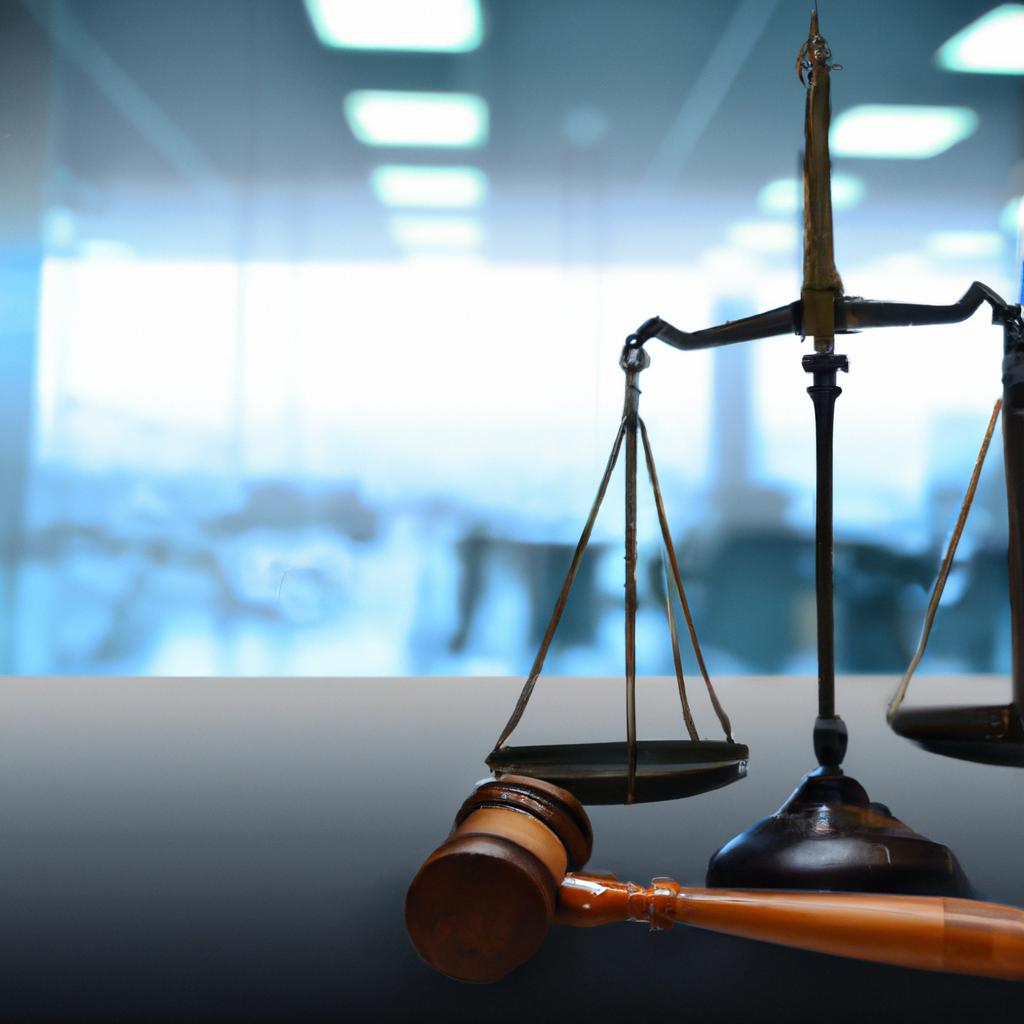As seasoned legal professionals at Morgan Legal Group, located in the bustling metropolis of New York City, we understand the delicate intricacies involved in estate planning and ensuring the proper execution of a last will and testament. One critical aspect that individuals often overlook is the selection of an executor to carry out the wishes outlined in their will. In this article, we will delve into the vital steps necessary to change the executor of a will, providing clear guidance and expertise to navigate this complex process with confidence and clarity.
Choosing a New Executor Wisely
When it comes to changing the executor of a will, it is crucial to choose a new executor wisely. This decision should not be taken lightly, as the executor plays a significant role in ensuring that the wishes outlined in the will are carried out properly. Here are some key considerations to keep in mind when selecting a new executor:
- Trustworthiness: It is essential to choose someone who is trustworthy and reliable to act as the executor of your will. This person will have access to sensitive information and assets, so it is crucial to select someone who can be trusted to handle these responsibilities with care and integrity.
- Organizational Skills: The executor will be responsible for managing the distribution of assets, paying off debts, and handling other legal and financial matters. Therefore, it is important to choose someone who is organized and detail-oriented to ensure that everything is handled efficiently and according to your wishes.
| Executor Name | Relationship to Deceased | Experience |
|---|---|---|
| John Doe | Friend | 5 years as executor |
| Jane Smith | Family Member | Lawyer specializing in estate planning |

Understanding the Legal Process of Changing Executors
If you find yourself in a situation where you need to change the executor of a will, it is important to understand the legal process involved in making this change. The executor of a will is the person responsible for carrying out the wishes of the deceased as outlined in their will. Here are some key steps to consider when changing the executor:
- Review the current will: The first step is to review the current will to ensure that there is a provision allowing for the replacement of the executor.
- File a petition with the court: In order to officially change the executor, a petition must be filed with the court. This petition should outline the reasons for the change and provide evidence to support the request.
- Notify all interested parties: It is important to notify all interested parties, including beneficiaries and other potential executors, of the proposed change. This will help to avoid any potential conflicts or challenges down the line.

Drafting and Implementing an Amendment to the Will
When it comes to drafting and implementing an amendment to a will, it is crucial to follow the proper legal procedures to ensure that the changes are valid and legally binding. One common reason for amending a will is to change the executor, the person responsible for carrying out the instructions in the will. To change the executor of a will, the following steps should be followed:
- Identify the need for a change in executor
- Determine the new executor and obtain their consent
- Consult with an experienced estate planning attorney
- Draft an amendment to the will specifying the new executor
- Sign and execute the amendment in accordance with state laws
Changing the executor of a will requires careful consideration and proper legal guidance to ensure that the amendment is valid and enforceable. At Morgan Legal Group in New York City, our team of experienced attorneys can assist you with all aspects of estate planning, including drafting and implementing amendments to wills. Contact us today to schedule a consultation and protect your assets for future generations.

Seeking Legal Assistance for a Smooth Transition
When it comes to changing the executor of a will, seeking legal assistance is crucial for a smooth transition. The process can be complicated and requires careful attention to detail to ensure that all legal requirements are met. At Morgan Legal Group, our team of experienced estate planning attorneys can guide you through the necessary steps to make this important change.
First and foremost, it is important to review the original will document to determine if there are any specific instructions regarding the appointment of an executor. If the will does not specify a replacement executor, our attorneys can assist you in filing a petition with the court to request approval for the change. We will work diligently to ensure that all legal formalities are followed and that the transition is completed smoothly and efficiently. Contact us today to schedule a consultation and begin the process of changing the executor of your will.
Q&A
Q: What is an executor of a will?
A: An executor is the person chosen in a will to carry out the deceased individual’s wishes.
Q: Why would someone want to change their executor of will?
A: There are numerous reasons why someone may want to change their executor, such as a falling out with the original choice, a change in relationship dynamics, or simply a desire to appoint someone more trustworthy or capable.
Q: How can one go about changing their executor of will?
A: To change the executor of a will, the individual must create a new will that specifically revokes any previous appointments and names the new executor. It is important to ensure that this new will is properly executed and legally binding.
Q: Are there any legal requirements or restrictions when changing the executor of a will?
A: The legal requirements for changing an executor may vary depending on the jurisdiction. It is important to consult with a lawyer to ensure that the process is carried out correctly and in compliance with local laws.
Q: Can a potential executor of a will decline the role if they are named in the will?
A: Yes, a potential executor has the right to decline the role if they are unable or unwilling to fulfill the responsibilities outlined in the will.
Q: Is it advisable to inform the original executor of will about the decision to change them?
A: It is generally considered respectful and prudent to inform the original executor of the decision to change them. However, this communication is not legally required.
Q: What steps should be taken to ensure a smooth transition of executorship?
A: It is important to clearly outline the reasons for the change in the new will, communicate the decision to all relevant parties, and provide the new executor with necessary documents and information to carry out their duties effectively.
Q: Are there any potential complications or challenges that may arise when changing the executor of a will?
A: Yes, complications can arise if the process is not carried out properly, or if there are disagreements among family members or beneficiaries. Seeking legal advice and ensuring all steps are taken meticulously can help prevent potential challenges.
The Way Forward
In conclusion, changing the executor of a will may seem like a daunting task, but with the proper legal guidance and attention to detail, it can be a straightforward process. Remember to carefully consider the implications of your decision and communicate openly with all parties involved. Ultimately, ensuring that your wishes are carried out smoothly and efficiently is worth the effort of taking the necessary steps to change your executor. Good luck with this important undertaking!
 The executor of a will plays a crucial role in ensuring that a person’s final wishes are carried out after their death. This individual is responsible for managing the deceased’s estate, including the distribution of assets and handling any outstanding debts or legal matters. However, there may come a time when the appointed executor is unable or unwilling to fulfill their duties, and changes need to be made. In this article, we will discuss how you can change the executor of a will, the reasons for doing so, and the process required for a smooth transition.
The executor of a will plays a crucial role in ensuring that a person’s final wishes are carried out after their death. This individual is responsible for managing the deceased’s estate, including the distribution of assets and handling any outstanding debts or legal matters. However, there may come a time when the appointed executor is unable or unwilling to fulfill their duties, and changes need to be made. In this article, we will discuss how you can change the executor of a will, the reasons for doing so, and the process required for a smooth transition.
Reasons for Changing Executor of Will
There can be several reasons for wanting to change the executor of a will. Some common situations include:
1. The executor has lost the capacity to handle the responsibilities due to illness, injury, or any other personal circumstances.
2. The executor has passed away.
3. The executor is not fulfilling their duties adequately.
4. The relationship between the executor and the beneficiaries has deteriorated, and the beneficiaries feel that the executor is no longer fit to fulfill their role.
5. The original executor has changed their mind about fulfilling the role and wishes to step down.
6. The deceased did not name an executor in their will, or the named executor is unable or unwilling to take on the role.
Whatever the reason may be, it is essential to ensure that the executor is capable and willing to fulfill their duties to avoid any conflicts or delays in the execution of the will.
Steps to Change Executor of Will
The process of changing the executor of a will depends on whether the testator (the person who made the will) is still alive or has passed away. Let’s look at the steps involved in both scenarios:
1. If the Testator is Alive:
If the testator is still alive, they have the right to make changes to their will at any time. To change the executor, they can either create a new will or make a codicil, which is an official legal document that amends the existing will. The testator must follow the same legal requirements for creating a will when making changes to their will or creating a codicil.
2. If the Testator has Passed Away:
If the testator has passed away, changing the executor involves going through the probate process, which is the legal process of administering and distributing the deceased’s estate. To change the executor during probate, the following steps need to be followed:
Step 1: Review the Probate Laws:
Before proceeding, it is crucial to understand the probate laws of the state where the deceased resided. Each state has its own set of rules and regulations, and it is essential to follow them to ensure a smooth executor change.
Step 2: File a Petition:
The first step is to file a petition with the court requesting the change of executor. This petition must state the reasons for the change and provide evidence to support your request.
Step 3: Attend a Court Hearing:
A court hearing will be scheduled where you and any other interested parties (such as the deceased’s family and beneficiaries) can present your case for changing the executor. The judge will then make a decision based on the evidence provided and appoint a new executor if deemed necessary.
Step 4: Notify Interested Parties:
Once the court has approved the change, the new executor must inform all interested parties, such as beneficiaries and creditors, about the change. It is vital to provide them with the necessary documents to ensure a smooth transition.
Step 5: Obtain Court Order:
The court will issue a written order approving the change of executor. This document must be kept safe and used to prove legal authority in managing the deceased’s estate.
Tips for Changing Executor of Will
Changing the executor of a will can be a complex and emotional process. Here are some practical tips to help make the transition smoother:
1. Communicate: Communication is key when changing the executor of a will. Make sure to communicate openly and honestly with the current and new executor, as well as any other interested parties.
2. Consider the Executor’s Role: Before appointing a new executor, think about their abilities, availability, and willingness to take on the role. It is crucial to choose someone who is competent, trustworthy, and has good communication skills.
3. Keep Documentation: It is essential to document all the steps involved in changing the executor of a will, including the court orders and written statements from interested parties. This documentation will serve as evidence and avoid potential disputes in the future.
Benefits of Changing Executor of Will
Changing the executor of a will can have several benefits, including:
1. Avoid Conflict: In situations where the original executor is no longer fit to fulfill their role, changing to a new executor can prevent conflicts and misunderstandings between the beneficiaries and the executor.
2. Ensure Efficiency: Appointing a new executor who is better equipped to handle the responsibilities can ensure that the probate process runs more smoothly and efficiently.
3. Peace of Mind: Knowing that a competent executor is managing the estate can provide peace of mind for the beneficiaries and ensure that the deceased’s final wishes are carried out correctly.
In Conclusion
The executor of a will holds a significant responsibility in ensuring the proper execution of the deceased’s final wishes. In some cases, changing the executor may be necessary for a variety of reasons. Whether the testator is still alive or has passed away, the process for changing the executor involves legal steps and should be done carefully. Communication, documentation, and careful consideration are essential in making this transition as smooth as possible.

